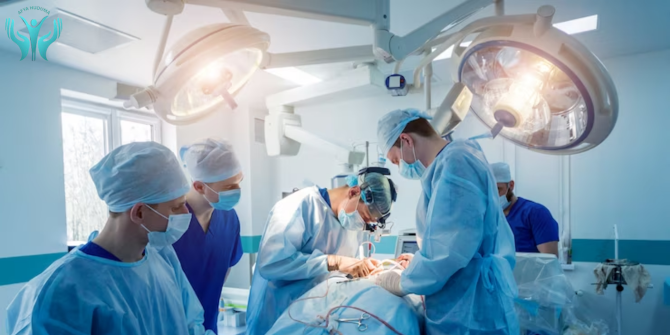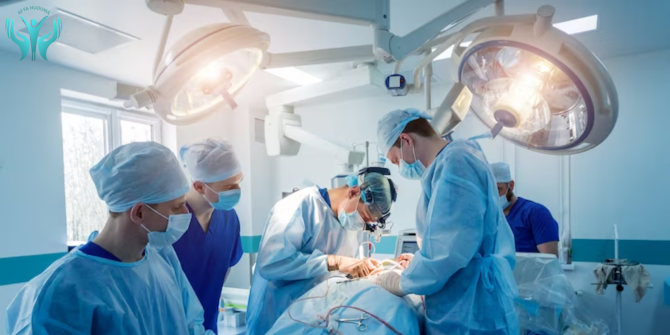
Life After Heart Transplant: What to Expect After a Heart Transplant Surgery?
When your heart needs a hero, a heart transplant comes to the rescue. It’s like upgrading to a healthier heart from a generous donor. This is for folks who’ve tried everything else, but their hearts still need a boost. The best part? If you take good care after the swap, the chances of feeling awesome again are pretty high
Immediate Post-Surgery Period:
The initial phase of post-heart transplant surgery is spent under the careful watch of medical professionals in the intensive care unit (ICU). This is the cocoon where the miraculous transformation takes place. After a few days of close monitoring, patients are shifted to a regular hospital room, marking the beginning of their journey to recovery. During this hospital stay, which typically spans a week or two, patients receive comprehensive care, ensuring their body adjusts to the new heartbeat.
Transition to Outpatient Care:
Leaving the hospital doesn’t mean bidding farewell to medical support. In fact, it’s just the beginning of a unique partnership between the patient and the transplant team. The next stop is the outpatient transplant center, where patients continue to be closely monitored. For the initial three months, proximity to the transplant center is advised, allowing for frequent check-ins and adjustments to the post-transplant regimen.
Monitoring for Signs of Rejection:
One of the primary concerns in the post-transplant period is the possibility of rejection. The body’s immune system may perceive the new heart as a foreign entity and launch an attack. To counter this, patients are educated on recognizing potential signs of rejection, such as fatigue, unexplained weight gain, shortness of breath, fever, or changes in urination patterns. Communication with the transplant team is paramount – any symptom should be promptly reported for immediate evaluation and intervention.

Also Read: Pediatric Healthcare: Caring for Your Child’s Health and Well-being
Follow-Up Appointments and Testing:
Post-transplant life involves a series of follow-up appointments akin to superhero check-ups. These appointments encompass a battery of tests, including heart biopsies, blood tests, echocardiograms, and electrocardiograms. In the initial months, heart biopsies are more frequent, as this period carries a higher risk of rejection. As time progresses and the likelihood of rejection decreases, the frequency of these essential tests gradually reduces.
Psychological and Emotional Support:
While the physical aspect of recovery is crucial, the emotional and psychological dimensions are equally significant. Heart transplant patients often experience a range of emotions, from gratitude and joy to anxiety and fear. Adjusting to a new lease on life can be overwhelming. Therefore, incorporating psychological support into the post-transplant care plan is essential. Many transplant centers offer counseling services, support groups, and resources to help patients navigate the emotional terrain of their newfound journey.
Medication Adherence:
A critical component of post-transplant care is strict adherence to the prescribed medication regimen. Immunosuppressant medications are typically prescribed to prevent the body from rejecting the new heart. Consistency in taking these medications at the prescribed times is non-negotiable. Deviations from the medication schedule can jeopardize the success of the transplant, making medication adherence a cornerstone of post-transplant life.
Lifestyle Modifications:
Life after a heart transplant often involves adopting healthier lifestyle choices. This includes maintaining a heart-healthy diet, engaging in regular physical activity as per the recommendations of the transplant team, and steering clear of habits that can compromise heart health, such as smoking and excessive alcohol consumption. These lifestyle modifications contribute to the overall well-being of the recipient and support the longevity of the transplanted heart.
Also Read: Building Your Superpower: Easy Ways to Make Your Immune System Strong
FAQs on What to Expect After a Heart Transplant Surgery?
Q1. What is the typical recovery time after a heart transplant surgery?
Ans: Recovery times can vary, but most patients spend about a week or two in the hospital. The initial phase is critical for close monitoring, and patients are gradually transitioned to outpatient care.
Q2. What changes can I expect in my daily life post-heart transplant?
Ans. Life after a heart transplant often involves adopting a heart-healthy lifestyle. This includes a balanced diet, regular exercise, and avoiding habits like smoking. Medication adherence is also crucial.
Q3. How often will I need to visit the transplant center for follow-up appointments?
Ans. In the initial months, follow-up appointments are more frequent, often including tests like heart biopsies, blood tests, and imaging studies. The frequency gradually decreases over time.
Q4. What are the signs of rejection, and when should I be concerned?
Ans. Signs of rejection may include fatigue, unexplained weight gain, shortness of breath, fever, or changes in urination. It’s essential to report any of these symptoms promptly to the transplant team for evaluation.
Q5. Can I resume normal activities like work and exercise after a heart transplant?
Ans. Gradual resumption of normal activities is encouraged, but it’s crucial to follow the guidance of the transplant team. Exercise plans are often tailored to individual needs, and returning to work depends on the overall recovery progress.
Q6. How long will I need to take immunosuppressant medications, and what are the potential side effects?
Ans. Immunosuppressant medications are typically required lifelong to prevent rejection. Side effects can vary but are closely monitored by the medical team. Any concerns or side effects should be promptly reported.
Q7. Are there any dietary restrictions post-heart transplant?
Ans: While there may not be strict restrictions, maintaining a heart-healthy diet is encouraged. This includes a balance of fruits, vegetables, lean proteins, and limited saturated fats.
Q8. Can I travel after a heart transplant, and are there any restrictions?
Ans. Travel is generally allowed, but it’s essential to discuss plans with the transplant team. Factors such as destination, mode of travel, and proximity to medical facilities are considered when assessing travel suitability.
Q9. How can I manage the emotional aspects of life after a heart transplant?
Ans. Emotional support is a crucial aspect of post-transplant care. Many transplant centers offer counseling services and support groups. It’s normal to experience a range of emotions, and seeking help is encouraged.
Q10. What happens if my body rejects the transplanted heart?
Ans. Rejection is a known risk, but early detection and intervention are key. If rejection is suspected, additional tests and adjustments to medications are implemented to address the issue promptly.
Also Read: Feel Good, Work Better, Easy Health Tips for Busy Life
Leave a reply






Leave a reply